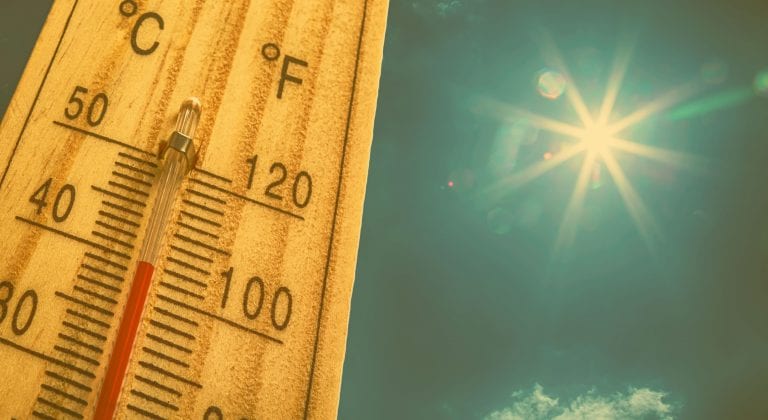Important Heat Safety Information for the Summer
July 12, 2017

Heat waves. We’re not talking about the fleeting feeling that old (or new) crush may summon up. Or that feeling when someone spills spaghetti sauce all over your white sofa. And nope, not hormones, either. According to the Red Cross, a heat wave is “a prolonged period of excessive heat, generally 10 degrees or more above average, often combined with excessive humidity.” Sounds pretty scientific, but it’s also pretty serious.
It’s summer, baby. And a combination of higher than normal summer temperatures plus high humidity can exacerbate chronic health conditions. It can also result in dehydration, heat exhaustion and more in otherwise generally healthy people. Watch out for upcoming heat advisories, excessive heat warnings and excessive heat watches from weather forecasters (and weather alert apps) in order to plan those fun summer outings accordingly. Be aware that the heat index can make it feel hotter than the actual temperature outside. Let’s talk more about heat stroke and how to prevent a heat-related illness with these heat safety tips!
Signs of Heat Stroke and Heat Exhaustion
If find yourself out in the extreme heat of the day, watch out for these signs of heat stroke:
- Higher than normal body temperature.
- Rapid and weak pulse.
- Shallow and rapid breathing.
- Confusion.
- Flushed, red skin that may be either dry or moist.
- Vomiting.
- Seizures.
Without treatment, heat stroke can be a life-threatening condition. The symptoms above signal that a body’s systems are overwhelmed and that the person needs medical attention as soon as possible. Spray the person in cold water and sponge them with ice water-doused towels to bring their body temperature down while waiting for help to arrive.
Prevent a Heat-Related Illness
How can you help prevent the symptoms of heat exhaustion and heat stroke in your family and pets? Being proactive about drinking plenty of water (don’t wait until you’re thirsty) and staying in air conditioned environments during the hottest parts of the day can help. Follow these additional tips during a heat wave:
- Know your community’s cooling stations: libraries, malls and other public areas available in the case of a power outage to a home or building.
- While staying hydrated and in those shady, cool environments, remember pets, young children, or elderly individuals who may also need attention. Similarly, check on friends, family members and neighbors who may not have air conditioning, who live alone or who may be vulnerable to developing a heat-related health issue.
- Consume light, small meals and eat more frequently throughout the day.
- Avoid strenuous exercise, games and activities during midday.
- Wear light-colored, loose-fitting clothes.
- Do not leave children or pets by themselves in an enclosed vehicle.
- Check NOAA Weather Radio for updates.
When you know about an upcoming heat wave, it is important to take steps to reduce your risk of developing heat exhaustion, heat stroke or heat cramps. If you have to exert yourself outdoors, take frequent breaks and work with a buddy. Listen to your body and cool off as necessary.
Address Heat-related Illnesses Quickly
Make sure you can beat the heat this summer. If symptoms of heat stroke or heat exhaustion begin to appear, look for ways to cool down and hydrate. Seek immediate medical attention for individuals showing confusion, changes to breathing, nausea and other serious signs of a heat-related illness. Timely treatment can save a life.
